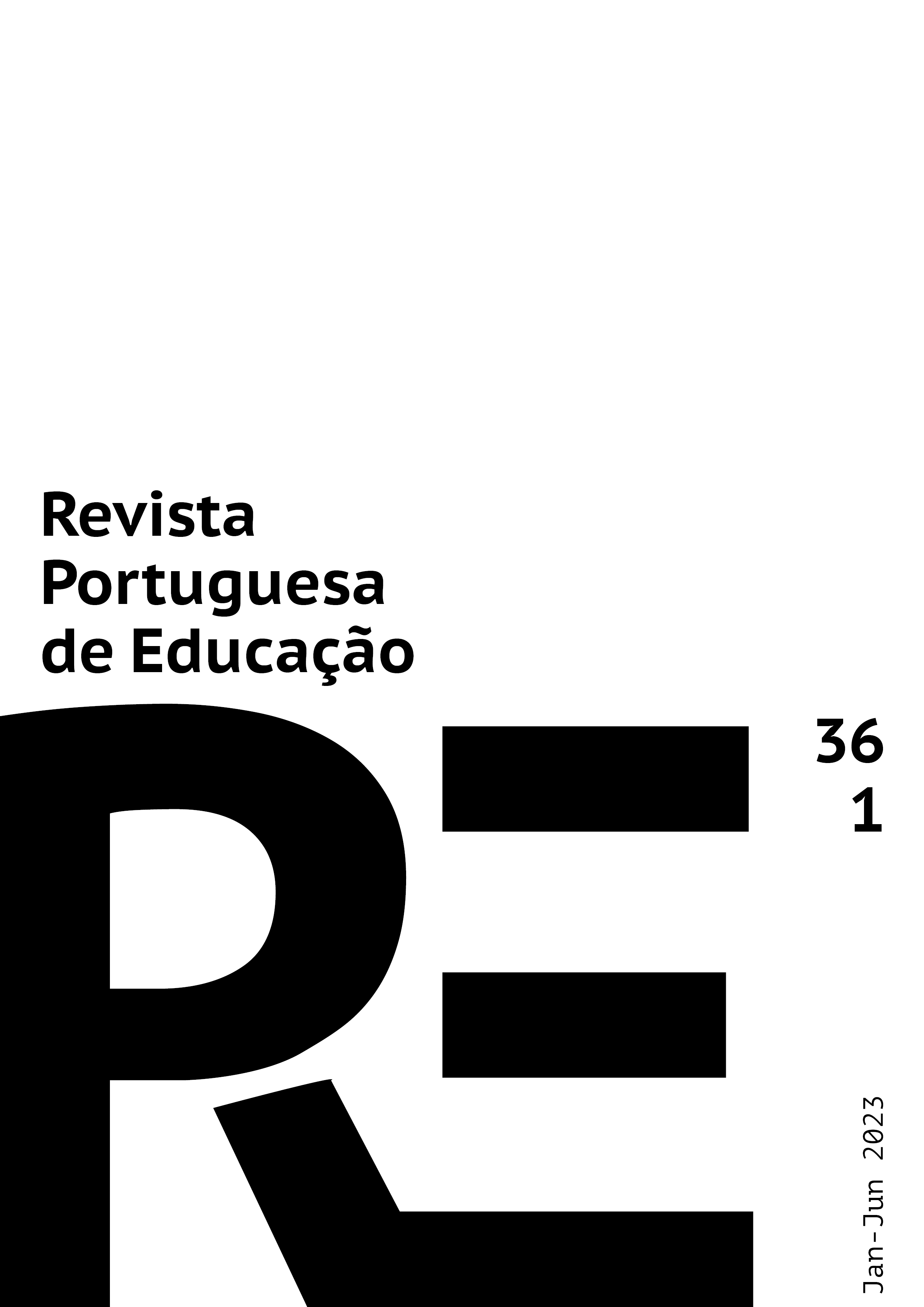Recensão da obra “Roma Minority Youth Across Cultural Contexts. Taking a Positive Approach to Research, Policy, and Practice”
DOI:
https://doi.org/10.21814/rpe.27341Downloads
References
Almeida, A., Abreu-Lima, I., Cruz, O., Gaspar, M. F., Brandão, T., Alarcão, M., Ribeiro Santos, M. & Cunha Machado, J. (2012). Parent education interventions: Results from a national study in Portugal, European Journal of Developmental Psychology, 9:1, 135-149. https://doi.org 10.1080/17405629.2011.647865
Benson, P.L. (2007). Developmental assets: An overview of theory, research, and practice. In R. Silbereisen & R. Lerner (eds.), Approaches to positive youth development (pp. 33-59). Sage.
Dimitrova, R., Ferrer-Wreder, L. & Ahlen, J. (2018). School climate, academic achievement and educational aspirations in Roma minority and Bulgarian majority adolescents. Child Youth Care Forum, 47, 645-658. https://doi.org/10.1007/s10566-018-9451-4
Freire, P. (2001). Pedagogia da autonomia: Saberes necessários à prática educativa (20.ª ed.). Paz e Terra.
Lerner, R. M., Wang, J., Hershberg, R. M., Buckingham, M. H., Harris, E. M., Tirrell, J. M., Bowers, E. P., & Lerner, J. V. (2017). Positive youth development among minority youth: A relational developmental systems model. In N. Cabrera & B. Leyendecker (Eds.), Handbook on positive development of minority children and youth (pp. 5-17). Springer, Cham. https://doi.org/10.1007/978-3-319-43645-6_1
Miranda, G. E., Almeida, A. T., & Mattar Yunes, M. A. (2022). Resiliencia familiar en el contexto del programa Caminhar em Família. Revista de Estudios e Investigación en Psicología y Educación, 9, 132-145. https://doi.org/10.17979/reipe.2022.9.0.8897
Rodríguez Gutiérrez, E., Martín Quintana, J. C., & Cruz Sosa, M. (2016). “Living adolescence in family” parenting program: Adaptation and implementation in social and school contexts. Psychosocial Intervention, 25(2), 103-110. https://doi.org/10.1016/j.psi.2016.03.004
Sarriera, J. C., Tatin, D. C., Coelho, R. P. S., & Bücker, J. (2007). Uso do tempo livre por adolescentes de classe popular [The free time usage by teenagers of lower class populations]. Psicologia: Reflexão e Crítica, 20(3), 361-367. https://doi.org/10.1590/S0102-79722007000300003
Seligman, M. E. P. (2019). Positive psychology: A personal history. Annual Review of Clinical Psychology, 15, 1-23. https://doi.org/10.1146/annurev-clinpsy-050718-095653
Smith, E. P., Faulk, M., & Sizer, M. (2016). Exploring the meso-system: The roles of community, family, and peers in adolescent delinquency and positive youth development. Youth & Society, 48(3), 318-343. https://doi.org/10.1177/0044118X13491581 Walsh, F. (2016). Applying a family resilience framework in training, practice, and research: Mastering the art of the possible. Family Process, 55(4), 616-632. https://doi.org/10.1111/famp.12260
Yunes, M. A. M., Fernandes, G., & Weschenfelder, G. V. (2018). Intervenções psicoeducacionais positivas para promoção de resiliência: o profissional da educação como tutor de desenvolvimento. Educação, 41(1), 83–92. https://doi.org/10.15448/1981-2582.2018.1.29766
Downloads
Published
How to Cite
Issue
Section
License
Copyright (c) 2023 Ana Maria Tomás de Almeida, Maria Ângela Mattar Yunes

This work is licensed under a Creative Commons Attribution-ShareAlike 4.0 International License.
1. The authors preserve their authorship and grant the Portuguese Journal of Education the right to the first publication. The work is licensed under Creative Commons Attribution License that allows sharing the work with the acknowledgment of initial authorship and publication in this Journal.
2. The authors have the right to take additional contracts separately, for non-exclusive distribution of the published version of their work (e.g. to deposit in an institutional repository or as a book chapter), acknowledging the initial authorship and publication in this Journal.
3. The authors have the permission and are stimulated to post their work online (e.g. in an institutional repository or on their personal website). They can do this at any phase of the editorial process, as it may generate productive changes, as well as increase impact and article citation (see The Open Citation Project).
The work is licensed under Attribution-ShareAlike 4.0 International (CC BY-SA 4.0)




















